Gaining Financial Freedom | Top 10 Books on Financial Literacy - Part #1
You have been earning a handsome amount of money for the last few years. But at the end of this month, you’re about to run out of money. Not one penny to your name, after all of your spending. Or you’re about to start earning money. You don’t know where to begin. Starting is usually the most difficult part of any journey. But, also therein lies a great question. You've started earning money, but will it solve all of your financial issues? Not necessarily. Earning money and utilizing money aren't the same thing. If you take a look around, you will see lots of your friends and family members earna good deal of money, but they’re suffering from money-centric issues. How is this even possible?

If you’re in such a situation, it means you lack financial wisdom. When you’re in trouble, you either let go of it or take the initiative and get out of it. Reading books on financial literacy will help you get out of financial trouble.
Shouldn’t having plenty of money solve all of the money-centric issues? No, there is a huge difference between creating money and creating wealth. While everyone is busy earning money, they ignore the task of creating wealth.
Consider this: Sometimes we buy something which might become a liability. We never considered this trivial possibility. If your asset becomes your liability, you could be in deep trouble. For instance, your latest luxury car requires a considerable amount of money for maintenance, which is in addition to your regular spending. Did you consider the possibility of this extra cost? Your asset purchase has now turned into a liability.
It’s okay to have insufficient knowledge regarding financial literacy. But suffering from the same issues day after day, year after year and being uninterested in sorting it out, is a big concern for anyone.
Read The Top Books on Financial Literacy Before You Start Earning
To be informed about money management and to understand its complexities, you need to read the best books on Financial Literacy. Below, we provide reviews of the best books on this topic.
In general, we used to share our experience with you. As books have different impacts on people, they have different expectations based on the person.
While one of my friends expects to learn everything from one book, my other friend is simply liberal to read any book without setting any expectations.
In this blog, we tried to pick the reader’s review and share their words reading this book. All of the listed books have a tremendous success rate. Based on the success rate, we just picked the most appropriate comments.
The Millionaire Next Door
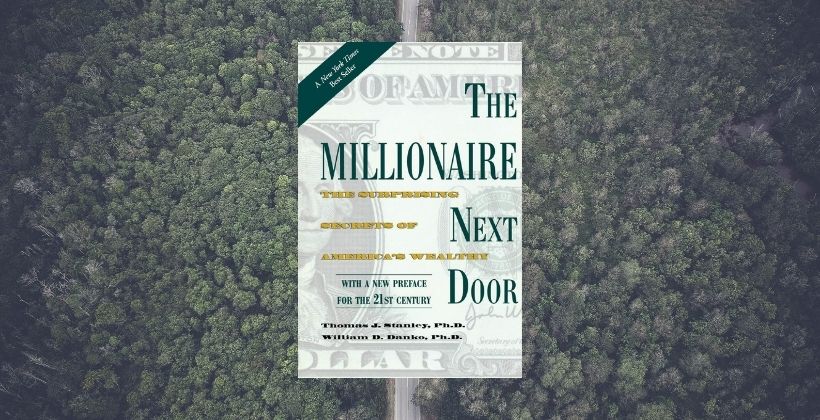
Author: Thomas J. Stanley and William D. Danko
Let’s see Jay’s experience of reading this book:
"I learned from this book that there are seven characteristics or common denominators among millionaires in America. They are:
They live well below their means - They are frugal, frugal, and frugal. They make more than they can spend. Pretty cool.
They allocate their time, energy, and money efficiently in ways conducive to building wealth. How else did they get there right? Well, this goes for those millionaires who didn't inherit their wealth.
They believe that financial independence is more important than displaying high social status - Practical. You can display high social status all you want, but if you're still dependent on active income, then you're one very vulnerable fellow.
Their parents did not provide economic outpatient care - Pretty good training ground, don't you think? They train their kids to be survivors and, in the end, to be winners. This is the best legacy they can leave to their children.
Their adult children are economically self-sufficient -Pass on the buck, right? That's why the rich get richer, and the poor get poorer.
They are proficient in targeting market opportunities - Now, this is one handy skill I want to get my hands on.
They chose the right occupation - Right! To wake up everyday itching so badly to get yourself to do the things you love. Isn’t that a ball!
Learn from this. The lessons and ideas may seem repetitive, but the author is trying hard to drive home a point. We need to learn the lessons. He wants us to. Well, we ought to."
Rich Dad, Poor Dad
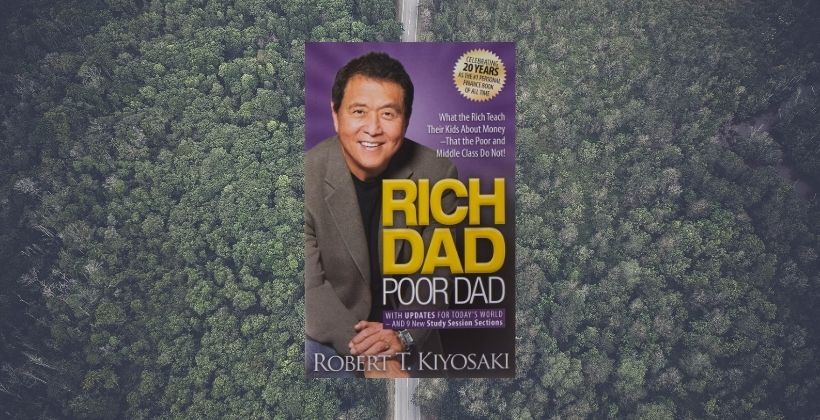
Author: Robert Kiyosaki and Sharon Lechter
Well, this book is one of the most popular books on financial literacy. So, it has had both good and bad reviews. We guarantee that you will not be disappointed after reading this book.
According to Louise Lil:
"This book is not just about money. It's about how we are taught to think, how schools, family, and friends program us to look at the rich as greedy, no good bloodsuckers, and opportunities as risks.
It is an attempt to reprogram minds to look at why we do what we do. Why do we buy all these shoes, clothes, cars, jewelry? Have we earned it, or are we just trying to maintain an image?
To me, the most important thing it teaches is that being educated is the key.
The book is great for people like me who think in pictures and theory. He explains his financial theories clearly and adds diagrams to explain how money flows into and out of our wallets.
I have read other financial self-help books, and they were too detailed, too "do this...do that..." That didn't help or motivate me because I don't do anything unless I want to do it.
Other books never really gave me the why. They told me what I needed to correct. If I don't see anything wrong with what I am doing, why should I correct it? This book broke it down to me. And now I am ready for action."
Why Didn’t They Teach Me This In School
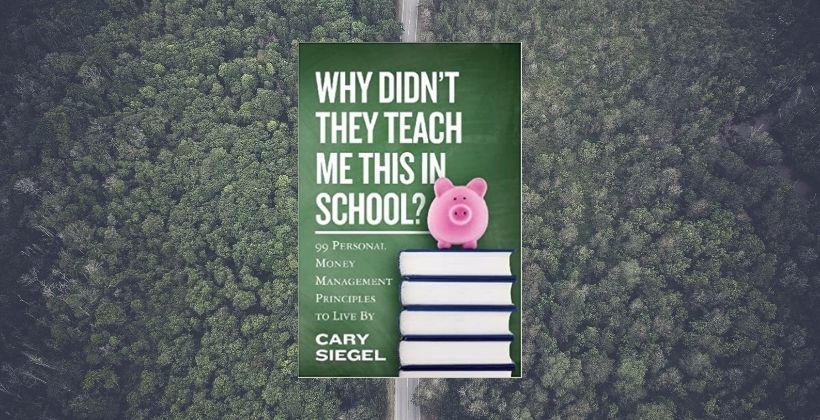
Author: Cary Siegel
"Cary Siegel possesses the question, why didn’t they teach me this in school? I have to say financial literacy isn’t championed in educational institutions. Instead, it’s put on the back burner which the ramifications are evident in young adults.
Kids go out into the world versed like they were when they were kids. This is an easy read but very insightful and simple. I learned a lot from reading this financial book.
I would recommend it to anyone. It’s never too late to get a grip on your finances. Always remember, never live above your means and pay your bills on time."
The Total Money Makeover
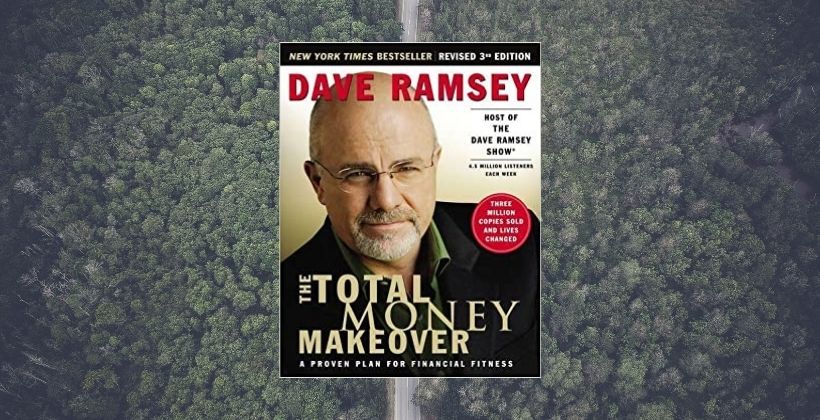
Author: Dave Ramsey
"This book is a great step-by-step plan to help you control your finances by walking you through the seven baby steps.
Small Emergency Fund of $1000
Pay off all debt except a house with a debt snowball.
Fully Fund Emergency Fund to 3-6x of living expenses.
Invest 15% of income for retirement
Fund kids college fund
Pay off mortgage
Have fun, give and invest"
The Automatic Millionaire
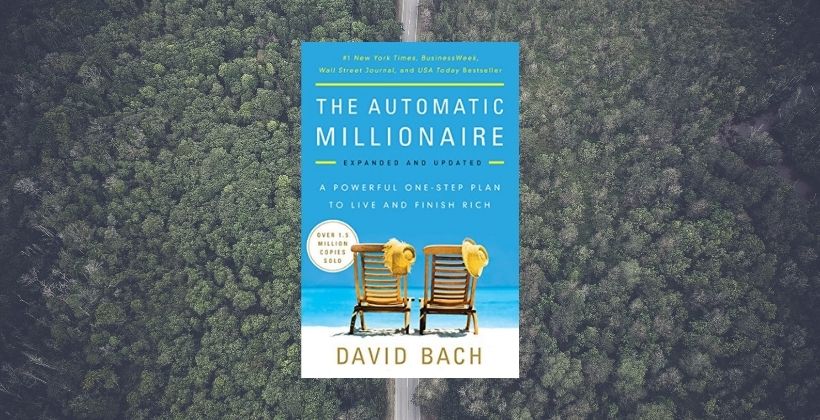
Author: David Bach
Lindsay’s experience of reading this book is:
"Aaron and I have read The Automatic Millionaire twice. This book is the updated copy. The title doesn't refer to a 'get rich quick scheme.'
It refers to automating your bills, paying yourself first, and how to have a safe and secure retirement with proper planning.
Although I am a Dave Ramsey lover, I feel like David Bach relates best to those who don't have lots of debt and are looking more towards planning for the future. Thankfully we are debt-free, but it comes with major sacrifice!!!
We truly live like no one else. We are all about retirement planning at this stage in life, so reading this had perfect timing.
Even if you do have debt, this is a great read for you. Identifying your "latte effect" will help you save money right away!! Do yourself a favor and read this GREAT book! Early retirement, here we come."
Your Money or Your Life
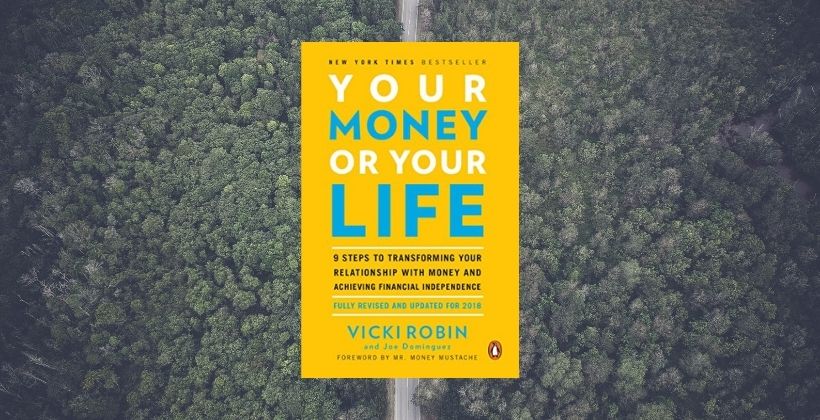
Author: Vicki Robin, Joe Dominguez, Mr. Money Mustache
"I could and will read and re-read this book, not for its literary value but for its simple explanations of concrete ways to observe your connection with the material world.
Whether or not you fully practice its program, it is the safest and most convincing account of the importance of financial savvy for those of us who proclaimed, "Money and fancy material things don't matter to me - so why should I try to manage my finances?"
Its message from ten years ago rings truer today than it did now, and I think my generation will even more appreciate its message.
I’m not a big self-help book reader. Yet, just the act of seriously studying this book and becoming intentional with my finances has relieved me of debt. Anxiety about money made me more in touch with what is valuable and joyful to me.
This book inspired me to look toward a career as a financial counselor. I would recommend this book to all my friends for it surely has lessons for everyone!"
Broke Millennial
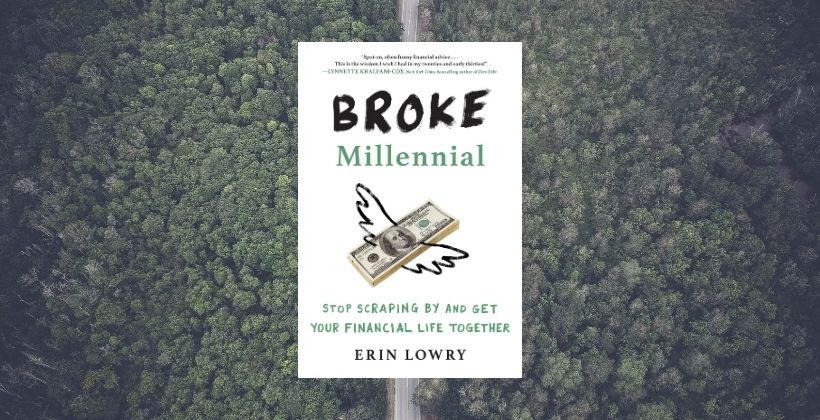
Author: Erin Lowry
"Did I already know some of the basics in this book? Yes. I'm not a complete idiot with my head in the sand when it comes to money.
But what Lowry did so well (in my opinion) is bridge the gap between basic, general, novice level money advice (build a savings habit, pay off your debts, have a budget) and intermediate level advice (What's a 401K? What is compound interest?
Terms to watch out for when you sign up for credit cards/bank loans). If those are things you consider "newbie" or "basic" financial lingo, then yes, this almost definitely won't be the book for you (And I'm jealous... I wish someone had told me this stuff YEARS ago).
Lowry not only helped me understand the basics and a little bit more, but she gave me the motivation to start taking control of an area in my life where my anxiety had been sharing the driver's seat for too long."
How to retire happy, wild, and free
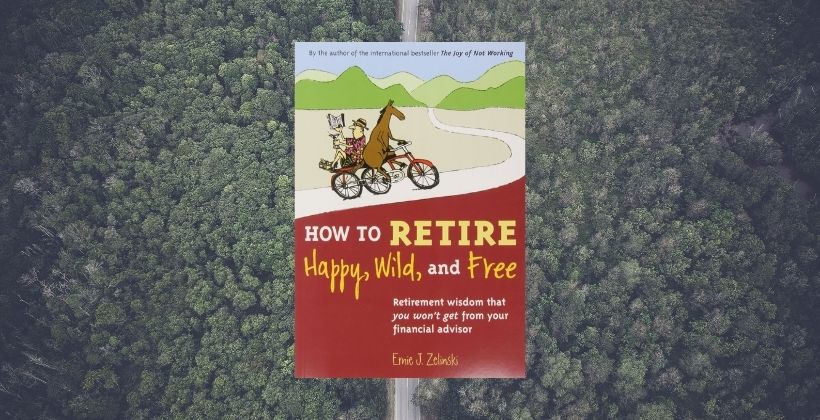
Author: Ernie J. Zelinski
Delores few words about this book:
"Ok, you are going to retire sometime. We can assume you have some finances already set up. But what are you going to do with your time then?
This book attempts to answer that question. The writer does a complete job of showing how others have filled their time. And he has a very unique and funny view.
To quote his closing chapter: The rest of your life begins now. It can be more than it has ever been. Your goal should be to enjoy everything in life that you can. It is a mistake not to. Let it be a wondrous life.
Life is all around you. Live it to the fullest, with all your senses. Listen to it, look at it, taste it, smell it, feel it. That's excellent advice no matter where you are on your lifeline."
Secrets of Six-figure women
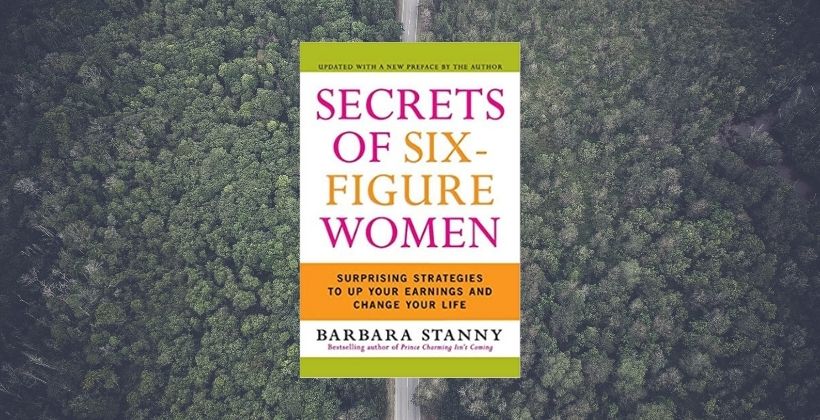
Author: Barbara Stanny
Sonya comments about this book:
"I enjoyed this book! Especially when she described the traits of an "underearner." A lot of times, your income doesn't change until your attitude towards money changes.
Once upon a time, I was a compulsive spender. I could have saved, but I didn't because I grew up in a household where holding onto money was viewed as somewhat selfish and greedy.
My parents spent every nickel and dime to raise four girls on less than blue-collar salaries. I realized I was doing the same thing. I didn't hold onto money because that was the norm for me growing up.
After adopting a more healthy mindset towards wealth and valuing my skills more, I managed to switch from a low-income industry to a well-compensated industry, leverage my previous work experience, and get a new job that boosted my income by 70%!"
The Richest Man on Babylon
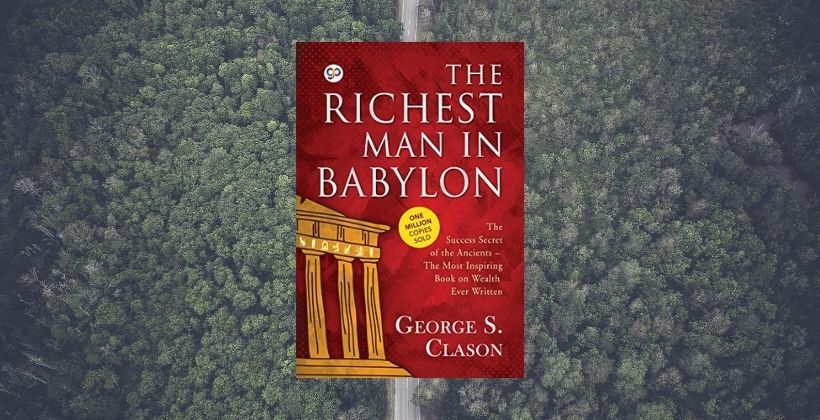
Author: George Samuel Clason
"This book was fantastic! It opened my eyes to finances and has changed the way I view them. One of the biggest things this book teaches is that no matter what size your income is, 10% of it is yours to keep.
Another is that debt is an enemy to conquer, not a necessary evil. One of the families in the story did this and had to pay rent on top of it. We have long realized that renting and paying interest on a mortgage is about the same.
Michael and I came up with a spending plan that allots 20% of our income to pay off our debt, and we will be completely debt-free in 9 years, and in that time, we will also have allotted 10% to savings.
10% of our income goes to tithing, giving us 60% of our income to live off of. But we took that figure and created a plan based on that amount. We're not going to starve on that figure.
This plan gives us less money for other things that we're used to buying and starting. We realize that we're going to have to sacrifice to make this work, but we figure that our family is the best time to establish these habits now while our family is young.
To be completely debt-free with our home before we even have teenagers will be a powerful thing. We just need to focus on this master plan. This book was highly motivating for me, and I recommend it to anyone who ever uses money."
It’s very common to have insufficient financial knowledge. Earning above the average wage doesn’t guarantee that you’re financially literate.
A person earning below the average income may lead a financially sound life. On the other hand, there are countless examples of people earning above the average leading a financially miserable life. To sum it up, there is always room for improvement. To get out of a financially miserable life, you need to actively look for a solution. The books mentioned above will give you the best solution to improving your financial literacy. If you have already read any of the listed books, feel free to share your experience with us. How has that book changed your life?
Similar Posts
How do you email a professor about funding?
How to Email a Professor About Research Opportunities
Avoid Getting Into A Fake University/College In Canada
How To Get Cheap Flights For Students
How to accomplish what you want - S.M.A.R.T. Goals for Students
Fake Friend? Learn the types of the fake friends
A Complete Guide on How to Write a Statement of Purpose
Graduate Admission Committee- What do they look for in an applicant?
Writing a Scholarship Essay That Indeed Works!
Have a wonderful topic in mind?
Email us at contact@skipissues.com
